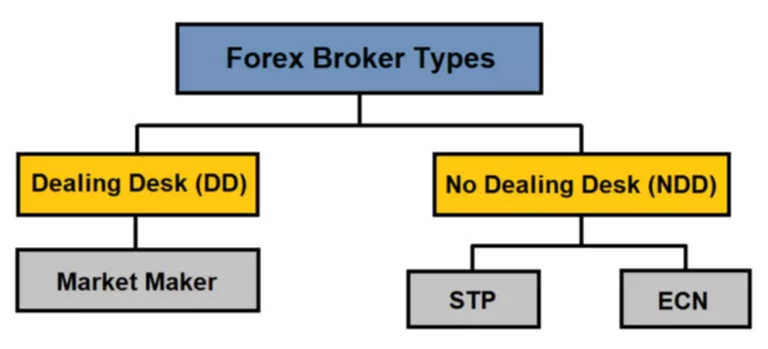Content
Before the era of scientific polling, early forms of prediction markets often existed in the form of political betting. One such Decentralized autonomous organization political bet dates back to 1503, in which people bet on who would be the papal successor. Many real-world securities are traded with the same mechanism as bets in a prediction market. Binary options trades represent a bet on the likelihood of a real-world event, with the price rising or falling as the likelihood of each outcome changes. Major events like presidential elections have enough inherent interest to still see solid markets, but only barely. There’s a lot of interest in what the odds are, but the volumes traded are quite thin, so much so that it is in the interest of partisans to trade in order to move the price and thus change the political narrative.
Continuous Double Auction Prediction Markets
Large markets and markets where people will ‘pay’ expected return for access create what are prediction markets those conditions. In our view, in prediction markets, no type of market participant – savers, gamblers, or sharps – is clamoring to be in the market, so there is no strong incentive pushing the market toward efficiency. Or perhaps, as Caplan’s colleague Robin Hanson proposed, we could design the structure of our government around the results of prediction markets. Right now, voters vote based on a combination of their empirical beliefs about how the world works and the moral values of political candidates.
What are Decentralized Prediction Markets?
Traders with different beliefs trade on contracts whose payoffs are related to the unknown future outcome and the market prices of the contracts are considered as https://www.xcritical.com/ the aggregated belief. Decentralized Prediction Markets (DPMs) are the crystal ball of the digital age, disrupting the way we predict and bet on future events. Fueled by blockchain technology, DPMs liberate predictions from intermediaries, offering a fair, secure, and transparent arena where users predict outcomes and reap rewards.
How Do Prediction Markets Work?
In traditional prediction markets, only a limited number of people can participate, which can result in biased or inaccurate predictions. Decentralized prediction markets, on the other hand, allow anyone to participate and contribute to the collective wisdom of the market, resulting in more accurate predictions. The first step in creating a decentralized prediction market is to identify the event or outcome that users will be predicting. This could be anything from the winner of a political election to the price of a particular cryptocurrency. Polymarket gained huge popularity in the run up and aftermath of the 2024 US election.
How Does Polymarket Decentralized Prediction Market Work?
- You can place your bets on any of the questions displayed in front of you.
- It does not constitute financial advice nor does it take into account your investment objectives, financial situation or particular needs.
- Many prediction markets use either oracles, or a decentralized network to determine event outcomes accurately.
- We don’t think our ‘you can already synthesize it’ line here makes the same mistake, since if traders urgently demanded a non-synthetic version, exchanges could easily have already created it.
- Derivatives, for example, are instruments whose value depends on some underlying asset.
- In a prediction market, each possible outcome of an event is represented by a token.
Each time you place a bet or trade shares on the platform, a small fee is applied. This fee is generally minimal and is used to incentivize liquidity providers, who ensure there is enough liquidity in the markets for efficient trading. Additionally, Polymarket benefits from the volume of trades, as higher trading volumes lead to more transaction fees being collected. Users can place bets on the outcome of the event by purchasing tokens, which are used to represent the outcome of the event. For example, in a prediction market for a political election, users might purchase tokens that represent the different candidates running for office.
Like with all prediction markets, Polymarket is rarely completely accurate. However, since it uses real-time data and offers incentives for correct answers, its infrastructure allows for much fairer and accurate odds than traditional prediction markets or polling systems. Polymarket’s UMA oracle has an incentivization scheme which means that participants are rewarded for providing the correct answer unlike with traditional polls. With a decentralized prediction market, cheating the system to influence the odds would cost money—money most aren’t willing to spend. Polymarket’s decentralized prediction market is a much more trustless option as it leverages secure and decentralized crypto network Polygon. Prediction markets thrive on liquidity, ensuring participants can buy and sell outcome tokens at fair prices without significant slippage.
A prediction market is a platform that allows users to buy and sell shares in the outcome of an event, with the price of each share reflecting the perceived likelihood of that event happening. In the world of cryptocurrency, these prediction markets are run on blockchain technology, which provides a secure and transparent platform for the trading of these shares. DeFi prediction markets cover a wide array of events, offering a versatile platform for users to speculate on real-world outcomes. These predictions are categorized based on the nature of the events they represent, and decentralized platforms like Polymarket and Augur enable users to engage in these predictions with real-time trading.
For example, it is impossible for a speculator to bet directly on an election in the U.S. Instead, the trader will have to find stocks that might increase in value if a certain candidate is elected. However, prediction markets allow traders to bet directly on the possibility of actual candidates being elected to office. Robin Hanson, a professor at George Mason University, is an advocate of prediction markets. He makes the case for prediction markets by emphasizing the removal of reliance on self-interested punditry by so-called experts. There are lots of stocks and futures and options and other such products available for purchase.
They harness collective intelligence to provide insights that are often more accurate than conventional methods. As they continue to evolve, especially with the integration of blockchain technology, their impact on various sectors is likely to grow significantly. The oldest online prediction market is the Iowa Electronic Markets, run by the University of Iowa.

In a real sportsbook, generally bets default to regulation time only, so the match would be ruled a draw, and the answer would be “No” even if England later won. The design of tokenomics can also impact the perceived value and demand for the token, which can affect the overall success and growth of the prediction market. Therefore, understanding the tokenomics of a prediction market is essential for evaluating its potential for success and growth. According to a Harvard Business Review article, the combination of multiple, independent judgments i.e. the wisdom of crowds is often more accurate than even an expert’s individual judgment. The premise is that people make better, more informed forecasts when they have to put money on it. If your prediction is correct, your shares will be worth $1 each when the market closes.
Prediction markets provide a few exceptions like elections, but gamblers can’t bring about prediction markets on everything. Beyond their exciting unpredictability and quick conclusions, sports matches are communal events of general interest. People are already fans of sports teams, even before the betting starts, and the predictable pace of seasons creates an ongoing community. The same cannot be said of most prospective prediction markets, which are often one-off events of little general interest.

The growth of similar platforms and continuous technological advancements could also drive Polymarket’s evolution. Polymarket does not charge additional fees for trading, but liquidity providers earn rewards from the transaction fees paid by traders. This incentivizes more participants to add liquidity, ensuring the markets remain efficient and active. In return, you earn a portion of the transaction fees collected from users who trade in the markets you support. This can be a profitable way to contribute to the platform while earning passive income. Now account for the fact that these studies are based on centralized prediction markets.
This information is often more accurate than individual or expert predictions, and is elaborated on in the ‘The True Value of Decentralized Prediction Markets — Forecasting’ section. Decentralized prediction markets operate on a blockchain, which means that they are not controlled by any central authority. This makes them more transparent and resistant to censorship and manipulation.
As mentioned at the top, legal access to decentralized prediction markets is unavailable in the US because of legal restrictions. Participants can interact with these smart contracts to place bets, make predictions, and receive payouts when the events occur. Never before have we had the ability to do this without Bookmaker third-parties (i.e. Bet365, FanDuel, DraftKings) skewing the odds to their benefit.
